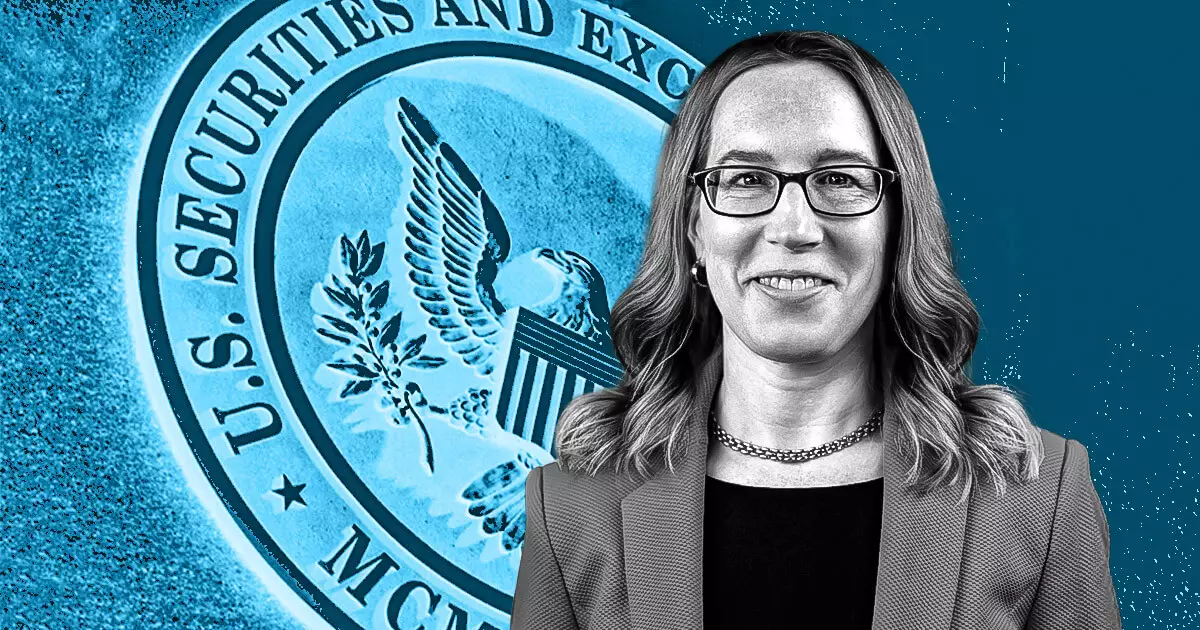Amid the ever-evolving regulatory landscape of the cryptocurrency industry, advocates have been vocal about the need for appropriate leadership at the Securities and Exchange Commission (SEC). Coinbase CEO Brian Armstrong recently expressed his support for Hester Peirce, a prominent figure in the crypto sector, to head the SEC in a potential future Trump administration. Executives like Armstrong are counting on Peirce’s fair and knowledgeable approach as a means to bridge the polarized political environment surrounding regulatory frameworks for digital assets.
Peirce, affectionately known as “crypto mom,” has gained admiration for her advocacy within the industry, particularly against measures she deems detrimental to the growth of cryptocurrencies. As a Commissioner at the SEC, she has positioned herself as an ally to innovators and businesses in the digital finance space. Her ascent to the agency’s helm could signal a pivotal change, particularly given the tensions that have arisen between the crypto community and current SEC Chair Gary Gensler, who is often viewed as inconsistent with the goals of the industry.
As discussions mount regarding the possibility of Trump resuming presidency, speculation surrounding Peirce’s role in a potential administration continues to gather steam. Her reputation as a balanced leader who understands both market demands and regulatory necessities positions her as a favored candidate among crypto advocates. The industry is hungry for a regulatory framework that facilitates innovation rather than stifles it, and Peirce’s credentials suggest she could deliver on this front.
However, there might be a significant hurdle. Sources close to Peirce indicate her reluctance towards the political arena, with intentions to explore more personal pursuits like beekeeping—a stark contrast to the high stakes of regulatory leadership. This reluctance raises questions: could a personal overture from the President sway her decision, or will she remain steadfast in avoiding the political spotlight? Fostering a future geared towards constructive dialogue will depend heavily on leaders willing to engage with both the industry and regulators.
While Peirce seems to be a frontrunner, the field of potential SEC appointments is varied. Advocates have floated other names such as Mark Uyeda and former officials like Chris Giancarlo and Brian Brooks. Each candidate brings unique perspectives that could enhance the SEC’s understanding of cryptocurrency, helping to formulate policies that promote growth while ensuring investor protection.
Ripple CEO Brad Garlinghouse stresses the importance of selecting a leader who would offer vast improvements over Gensler’s current stance. With calls from various stakeholders for a reevaluation of leadership, it becomes evident that the future of crypto regulation in the United States lies not only in finding a suitable successor but also in creating an environment conducive to innovation and trust.
The conversation surrounding leadership at the SEC is more than a personnel discussion; it encapsulates the hopes and aspirations of an entire industry seeking affirmation and stability. As the regulatory climate in the United States undergoes scrutiny, industry professionals are clarifying their visions for a balanced approach to regulation, one that empowers innovation while safeguarding the interests of investors. The next few months could prove consequential as decisions are made that will shape the future of cryptocurrency regulation—creating either a nurturing or adversarial environment for the burgeoning industry.
















Leave a Reply